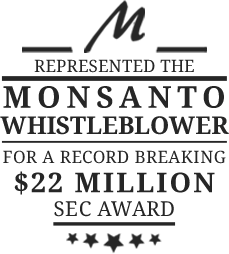What Is Securities Fraud?
Securities fraud is the misrepresentation or withholding of material information that is critical to investor decisions. Many forms of white-collar crime are actually securities violations.
The Securities and Exchange Commission (SEC) is the principal regulatory agency responsible for investigating and punishing securities fraud. Because the SEC is fairly small in terms of number of staff, and because securities fraud is so rampant, the SEC is often hard-pressed to adequately regulate the financial markets.
Due to this, the SEC is known to reward whistleblowers who can provide vital information regarding past, current, and future securities fraud scams.
If you’re involved with the securities industry in any way, whether as an employee, trader, or outside observer, it pays to be acquainted with securities fraud as you might one day find yourself in the position to become a whistleblower and claim a reward.
Who Commits Securities Fraud?
Virtually anyone involved in the stock market or the financial industry could be in a position to commit securities fraud. Most commonly, securities fraud is committed by investment banks, stockbrokers, brokerage firms, hedge and mutual funds, and publicly traded corporations.
These entities are the most likely because they’re in the best position to commit fraud effectively. Brokers, investment banks, and fund managers provide the service of advising investors and managing their stock portfolios, and the less scrupulous ones are fully willing to use their position for their own financial gain.
Corporations, on the other hand, most commonly commit securities fraud through accounting fraud and inadequate disclosures. Companies are motivated to keep their shareholders happy, and sometimes company executives hide losses and poor financial quarters through false filings and questionable bookkeeping.
Finally, individual traders and investors are capable of committing securities fraud. Fraudsters often hatch complicated schemes that manipulate the market or take advantage of critical information that isn’t publicly available.
Examples of Securities Fraud
The securities industry is endlessly complicated, which means that fraud takes many forms—all of which can put the life savings of thousands of investors at risk. With truly pervasive securities fraud, entire sectors of the financial market can be destabilized.
These are just a few examples of different types of securities fraud that get investigated by the SEC on a regular basis:
- Insider trading
- Money laundering
- Embezzlement
- Naked short selling
- Market manipulation scams
- Accounting fraud
- Offering fraud
- Pyramid schemes
Have You Discovered Stock Fraud?
If you think you’ve encountered securities fraud, you might be eligible to become a whistleblower and report it to the SEC. Doing so could entitle you to claim a significant monetary reward.
To find out how valuable your information is, contact Meissner Associates for a free, confidential tip evaluation. Just submit your information through the form below or call us directly at 1-866-764-3100.









